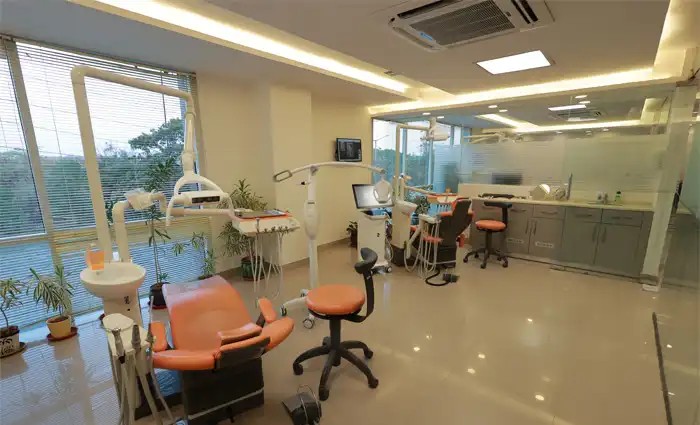Teeth-in-an-Hour
Teeth-in-an-Hour is an advanced dental implant technique that utilizes computer-guided surgery and prefabricated components to streamline the implant placement process. Unlike traditional implant procedures, which require multiple appointments and a lengthy healing period, Teeth-in-an-Hour allows for the placement of dental implants and fixed prosthetic restorations in a single visit to the dentist, often in as little as one hour.
The technique was developed by Nobel Biocare. This streamlined process significantly reduces chair time for the patient, though full-mouth restorations may require more time. The primary advantage of this procedure is the precision of implant placement compared to traditional “freehand” methods. However, it removes the tactile feedback typically experienced by the surgeon, making it more suitable for less experienced implantologists.
What is the Procedure for Teeth-in-an-Hour?
The initial step is to comprehensively examine the patient’s oral health, including X-rays, CT scans, and digital impressions to assess bone density, anatomy, and treatment objectives. Thereafter, advanced computer software is used to plan the precise placement of dental implants and design custom surgical guides and prosthetic restorations. Prefabricated surgical guides and prosthetic restorations based on the treatment plan and patient’s unique anatomy is then created, using computer-assisted milling.
Dental implants are then surgically placed guided by the custom surgical guides, ensuring precise positioning and alignment. Immediate attachment of prefabricated prosthetic restorations to the dental implants is done, restoring function and aesthetics. The patient may need to come for regular follow-up appointments to help monitor healing progress, assess implant integration, and make any necessary adjustments to the prosthetic restoration.
Factors to Consider for Teeth-in-an-Hour
Not all patients are suitable candidates for Teeth-in-an-Hour implants, particularly those with complex anatomical considerations, systemic health issues, or inadequate bone volume.
Thorough preoperative planning, including comprehensive imaging and virtual treatment planning, is essential to ensure accurate implant placement and predictable outcomes.
Successful implementation of Teeth-in-an-Hour requires specialized training and expertise in computer-guided surgery and implant dentistry.
Patients must adhere to postoperative care instructions and attend regular follow-up appointments to monitor healing and ensure the long-term success of the implants.
Not all patients are suitable candidates for Teeth-in-an-Hour implants, particularly those with complex anatomical considerations, systemic health issues, or inadequate bone volume.
Thorough preoperative planning, including comprehensive imaging and virtual treatment planning, is essential to ensure accurate implant placement and predictable outcomes.
Successful implementation of Teeth-in-an-Hour requires specialized training and expertise in computer-guided surgery and implant dentistry.
Patients must adhere to postoperative care instructions and attend regular follow-up appointments to monitor healing and ensure the long-term success of the implants.
Disadvantages of Teeth-in-an-Hour
Optimal Bone Structure Requirement
This technique requires optimal bone structures in the maxilla (upper jaw) and mandible (lower jaw), which is uncommon in many patients. Bone deficiencies can limit the applicability of this procedure.
Cost
The procedure is expensive due to the necessity of a CAT scan and the use of Nobel Biocare’s specialized Bioguide.
Preparation Time
There is a waiting period of 2-4 weeks for the preparation of the surgical guide.
Suitability
This procedure is unsuitable for cases with existing infections. It cannot be performed when extraction and immediate implant placement are required.
Today, numerous companies, such as Simplant, produce surgical guide stents compatible with other implant systems, expanding the options available for guided implant placement. Immediate dental implantology has evolved significantly, not only in technique but also in implant design. For instance, Dr. Motiwala’s “Smile-in-3-Days,” developed in collaboration with Dr. Stefan Ihde, represents a further advancement in this field, offering rapid and reliable restoration solutions.




